Christmas is typically recognized as a season of joy and togetherness, but for some, it can feel like plowing a field of emotional triggers. Imagine spending the holidays walking on eggshells while under the same roof as someone who pries in your most vulnerable struggles.
That’s precisely the situation today’s original poster (OP) found herself in during Christmas at her in-laws’ home. What should have been a time to relax with family turned into a test of endurance, thanks to her mother-in-law, who couldn’t seem to keep her intrusive thoughts to herself.
More info: Mumsnet
Picture spending Christmas walking on eggshells around that one family member who always finds a way to make comments about your personal life

The author deals with secondary infertility but her pushy mother-in-law is obsessed with becoming a grandmother again
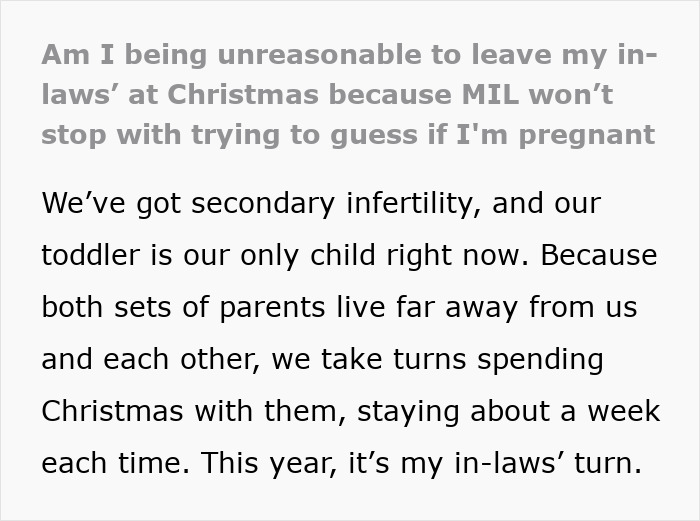
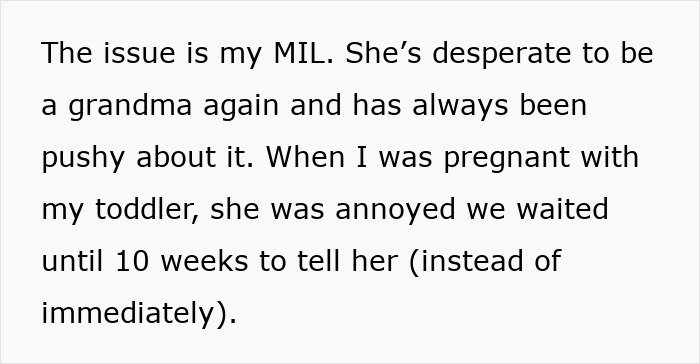

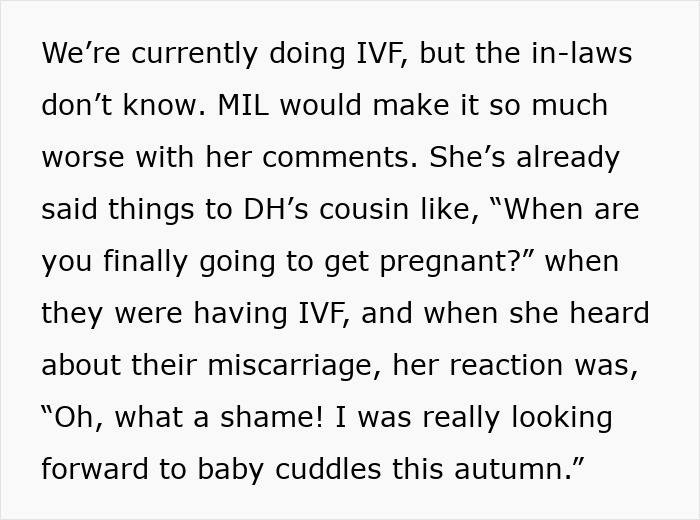
Image credits: mariannnnaa

During a holiday visit, the author’s husband asked his mother to stop, but she dismissed him by claiming she was just “excited”




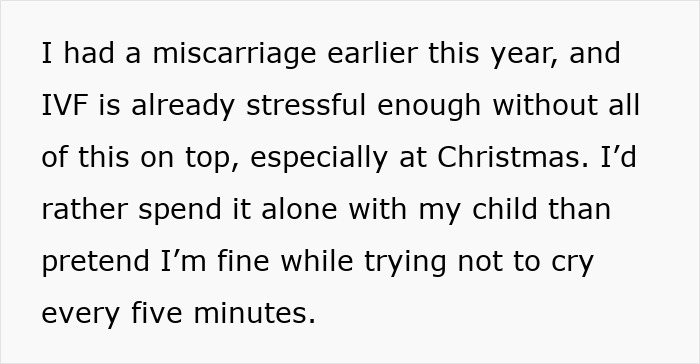
Image credits: mariannnnaa

And then, she considered leaving the Christmas family gathering due to more invasive remarks about pregnancy from her mother-in-law
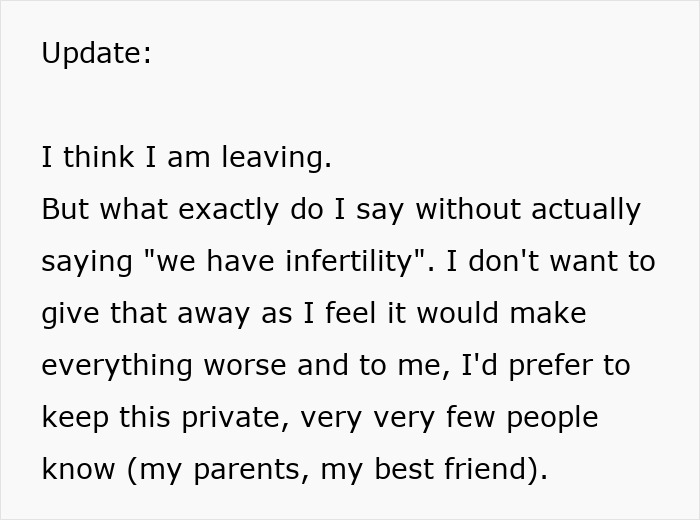


Image credits: mariannnnaa
Out of curiosity, the author wanted to hear from netizens as to whether she was being unreasonable for wanting to leave
The OP, who has secondary infertility, shared that she and her husband have been trying for another child through IVF—a process they chose to keep private. The couple already have a toddler and, like many families, alternates Christmas visits between both sets of grandparents.
This year, Christmas was at the in-laws’ house. However, the OP’s mother-in-law’s obsession with becoming a grandmother again overshadowed what should have been a peaceful holiday. She had a track record of making insensitive remarks, especially when it came to pregnancies and fertility.
When the couple waited to announce their first pregnancy at 10 weeks, her mother-in-law was offended. However, the real reason for holding off the announcement in the first place was due to her usual tone-deaf and insensitive nature.
During this Christmas visit, the OP’s mother-in-law referred to pregnancy non-stop. From snide remarks about food choices to digs about ride restrictions at a fair, she constantly hinted at the OP getting pregnant again.
Despite the OP’s husband stepping in and asking his mother to stop, she brushed it off, claiming she was “just excited” for when another baby would come along. For the OP, after enduring a miscarriage earlier in the year and the stress of IVF, she felt drained and was ready to leave.
The idea of staying through more sly remarks seemed unbearable, and she began to consider cutting the visit short for her own emotional health.

According to The IVF Center, secondary infertility—difficulty conceiving after having a child—can have serious psychological effects. Women facing secondary infertility often experience emotional distress, including shock, sadness, frustration, and a loss of self-esteem.
Infertility is particularly stressful due to societal pressure to have children, and research suggests that couples often conceal their emotions due to the private nature of the issue. This can strain relationships, especially with family members—like the OP’s mother-in-law, who persistently pressured the OP about pregnancy.
Speaking of in-laws, family relations aren’t always the easiest, especially when it comes to them. In fact, REC Parenting states that the relationship between mothers-in-law and daughters-in-law can be the most complicated and challenging.
These relationships often involve a difference in values, beliefs, and family dynamics, which can create tension. When there’s conflict, it can negatively affect one’s mental health, marriage, and the relationship with the in-laws. In many cases, issues also arise over grandchildren.
According to the Taylor Counselling Group, setting healthy boundaries with especially difficult family members is important for maintaining one’s mental health. To do this, they recommend approaching the situation directly and kindly, expressing concerns and expectations clearly. It’s essential to be firm, even when family members resist change.
Netizens largely agreed that the OP was justified in leaving to protect her mental health, as they emphasized that the mother-in-law’s comments crossed boundaries. They suggested that by leaving, the OP might force her mother-in-law to understand the severity of the situation.
The overall consensus was clear—if the mother-in-law refused to respect boundaries, drastic measures like leaving may be the only way to stop the hurtful comments.
The OP later stated in an update that she was leaving the family gathering. Do you think leaving would be the best option in this situation, or is there another way to deal with a relentless mother-in-law? We would love to hear your thoughts!
Netizens were quick to support her, stating that her mother-in-law crossed boundaries, and the best thing she could have done was to leave












